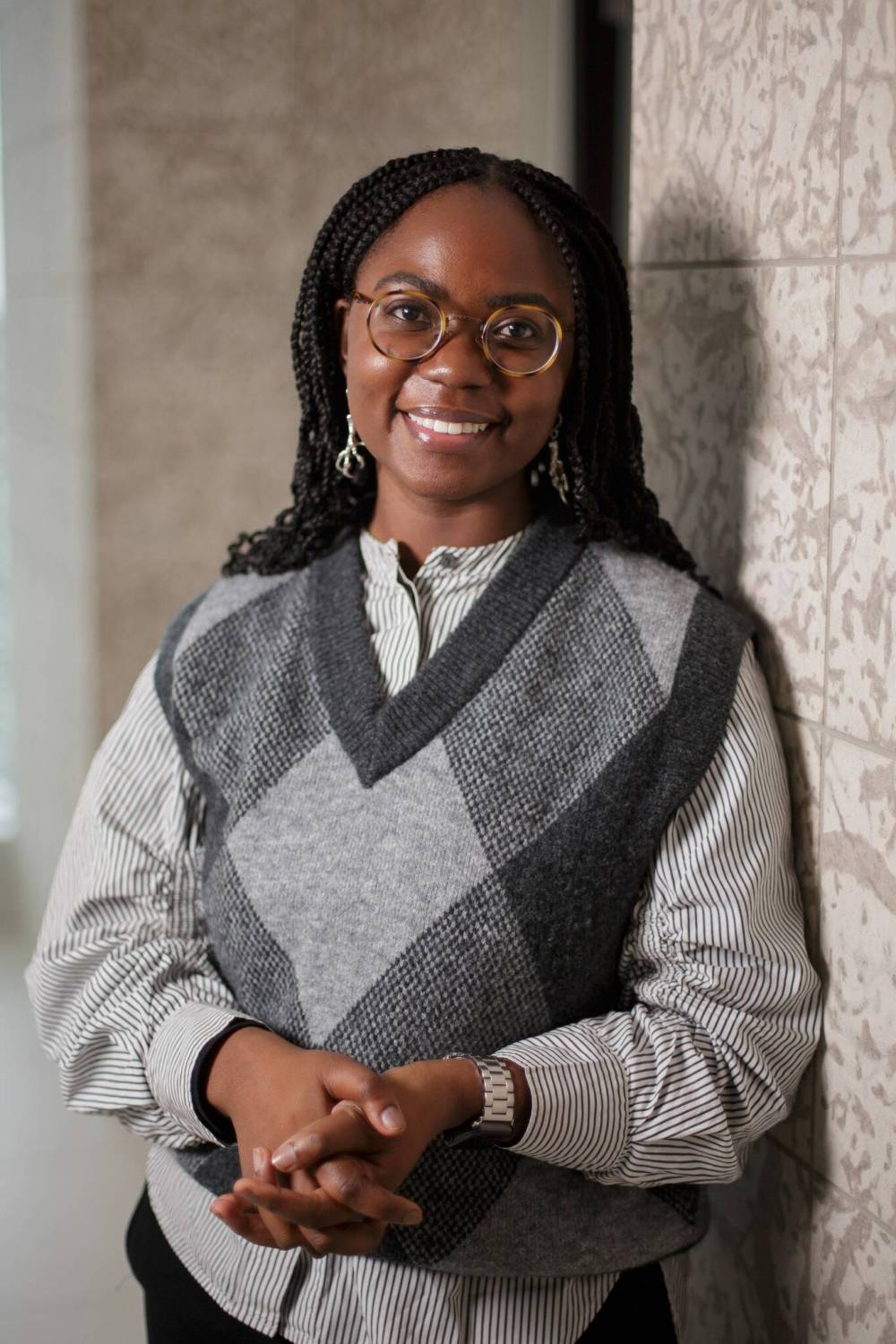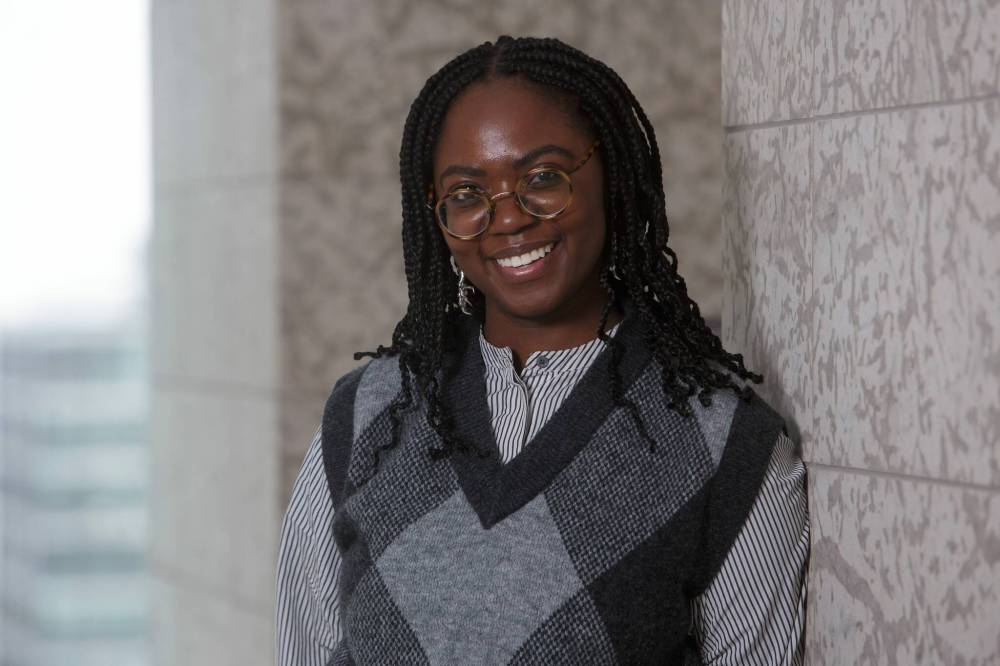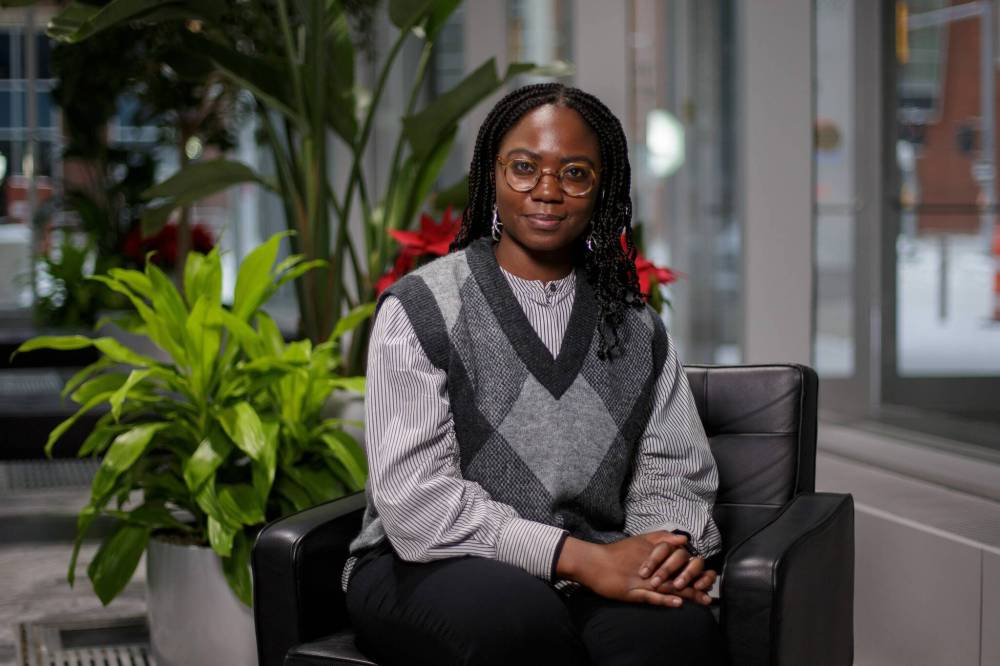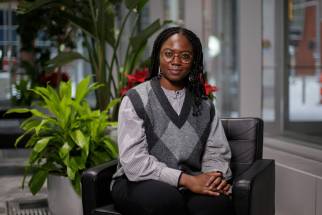Weighing her words For Winnipeg’s new poet laureate, grappling with language is a way to navigate the world
Read this article for free:
or
Already have an account? Log in here »
To continue reading, please subscribe:
Monthly Digital Subscription
$0 for the first 4 weeks*
- Enjoy unlimited reading on winnipegfreepress.com
- Read the E-Edition, our digital replica newspaper
- Access News Break, our award-winning app
- Play interactive puzzles
*No charge for 4 weeks then price increases to the regular rate of $19.00 plus GST every four weeks. Offer available to new and qualified returning subscribers only. Cancel any time.
Monthly Digital Subscription
$4.75/week*
- Enjoy unlimited reading on winnipegfreepress.com
- Read the E-Edition, our digital replica newspaper
- Access News Break, our award-winning app
- Play interactive puzzles
*Billed as $19 plus GST every four weeks. Cancel any time.
To continue reading, please subscribe:
Add Free Press access to your Brandon Sun subscription for only an additional
$1 for the first 4 weeks*
*Your next subscription payment will increase by $1.00 and you will be charged $16.99 plus GST for four weeks. After four weeks, your payment will increase to $23.99 plus GST every four weeks.
Read unlimited articles for free today:
or
Already have an account? Log in here »
Hey there, time traveller!
This article was published 07/12/2022 (1095 days ago), so information in it may no longer be current.
Chimwemwe (Chim) Undi pauses a lot. She weighs each question carefully before answering, her words examined thoroughly from all angles, measured out and deliberate, her thoughts fully untangled before she gives voice to them.
What she says, and how she says it, is of utmost importance.
MIKE DEAL / WINNIPEG FREE PRESS Chimwemwe Undi is a practising lawyer and poet who caught the poetry bug in high school.
The 28-year-old lawyer — Undi practises employment, labour and intellectual property law at Thompson Dorfman Sweatman — is working from home when we speak, keeping an eye on 11-week-old pup Mingus, and coming to grips with being named Winnipeg’s latest poet laureate, the city’s third, by a panel of literary experts commissioned by the Winnipeg Arts Council.
She’s stepping into the rather large boots of Duncan Mercredi, one of the city’s most beloved wordsmiths, who says they couldn’t have chosen a better person to succeed him.
“It’s a real honour,” Undi says. “I was completely taken aback that I was asked. I admire both Duncan’s work and his dedication to fostering community and supporting young writers. I will be pleased if I can match even a part of his impact.”
Undi has been part of Manitoba’s poetry community for more than 10 years now, having started off as a youth poet in high school. She hopes her role will give her the opportunity to advocate for poets and invite more people into the community, as well as extend and expand on the work she has already done through poetry with youth and in schools.
“Because I started writing and performing poetry when I was a teenager, it was one of the first examples in my life that I could have and express thoughts, and people could really care about them and connect with them,” she says. “I think that’s a really formative and important experience for a young person to have… to learn that their carefully formed thought, that something that they have spent time on and thought through, is of value to other people.”
“My work is about the world as I experience it, and because I am a Black, queer woman living on Treaty 1 land in 2022, these are facts of my world.”–Chimwemwe (Chim) Undi
While she may have only started taking it seriously in her teenage years, Undi was writing poetry long before that. In 2003, as a third-grader living in Namibia, she wrote and performed a poem at a special assembly for Namibian Independence Day. She can’t remember what the poem was about, although it must have been something patriotic, she admits bashfully.
“I don’t really deal with those anymore, but I was eight and I forgive myself,” she laughs.
Nowadays her poetry touches on rather more challenging topics, from gentrification and colonialism to racism, bigotry and decolonization.
But she does not want her work to be pigeonholed, and justifiably so.
“I am reluctant to call these the main themes of my poetry, as these kind of big, scary descriptors can sideline work by writers of colour,” she says. “My work is about the world as I experience it, and because I am a Black, queer woman living on Treaty 1 land in 2022, these are facts of my world. They are things I ask questions about in my writing, alongside smaller questions about myself, my relationships, love, history, dance parties…”
Born in Winnipeg in the late ’90s, Undi and her family moved to Namibia when she was two. She spent her formative years in Windhoek, the capital city, before moving back to Manitoba in the dead of winter, on the brink of teenagehood.
MIKE DEAL / WINNIPEG FREE PRESS Poet laureate Chim Undi says her poetry is about the world as she experiences it.
The move at the cusp of change was a shock to her system. It wasn’t just frigid temperatures she had to contend with. Adapting to life here threw up some rather tricky challenges. And even though she felt welcomed in the city, some change was required of her.
“I would say that my accent changed really quickly because I figured out, like, that’s not going to be great for you. My name is already Chimwemwe; people see my name written down and you can see a sort of a wall go up in their eyes. They’re like, ‘I don’t know what I’m going to do with this name.’ I felt that I had to assimilate to be welcome.”
Does she still feel the same way?
“Yeah, I would say so. I feel like I have better tools to question why I feel that way or to push back against it, but I do think that some of the opportunities in my life are because I am better at navigating certain spaces than other people with my identity,” she shares.
Writing was a route to understanding her place in the world and encouraged her to think about her new surroundings.
“It’s such an interesting time to move to a new place, being 13 and beginning to be the person you are going to be. Plopped out of one context and into a completely different one… it probably has a lot to do with why I write. I was never an extroverted person and so it was a way for me to kind of navigate what I was navigating.
“I always joke that there is no scarier crowd than your high school peers, but our peers were actually very supportive.”–Chim Undi
“Other poets talk about writing poetry as the practice of noticing, making a discipline of being in the world and thinking about the world and responding to the world. Just to survive junior high, you have to be a bit of an observer, you have to figure out what people are doing, and I developed a sort of a watchfulness which I think is common across poets.”
She went to school at Acadia Junior High and then on to Fort Richmond Collegiate (FRC), where the spark for spoken word was cultivated by “FRC’s excellent art teacher, Dawn Knight.”
“I was part of a spoken-word poetry club in high school: a ‘slam’ club, named for the spoken-word competition format. She (Knight) founded the club and kept it going.
“I always joke that there is no scarier crowd than your high school peers, but our peers were actually very supportive. I’m not sure if anyone else from the slam club still writes or performs, but I got the bug and I never stopped,” she says.
The bug, as she calls it, has seen her win awards, perform at multiple literary festivals here and abroad, and publish a collection of poetry, The Habitual Be, part of the New Generation African Poets chapbook set. She also recently submitted a manuscript to House of Anansi Press, the country’s leading independent publisher.
“At the beginning of this year I set a resolution that I was going to sell my manuscript,” she says. “I did a residency for two weeks in July and sent it to them in August, and they bought it, so we’re working on it right now.
MIKE DEAL / WINNIPEG FREE PRESS Chim Undi has been named Winnipeg’s third poet laureate. 
“This is my first book, so I feel like I’ve been writing it my whole life,” she says with a laugh. “The book considers how stories are told, and what is elided… in their telling. In it, I grapple with language in order to grapple with climate rage, with Blackness, with art and pop culture, with linguistics and law, and with girlhood, womanhood and queerness shaped and misshapen by my specific intersections.”
Moulded by lived experiences and refined in the fire of slam clubs, Undi’s poems are arresting. Reading them on a device, they sprawl across the screen, as if trying to break free from their confines. There is rhythm here, the sentences pulsing their way through the line breaks, skirting punctuation, manoeuvring the reader to take pause and truly consider just what it is she’s saying.
Hers are deceivingly benign words: standing alone, they wield no power but when corralled together they display depth and weight that leaves you feeling exhilarated and a little breathless.
Somehow you hear them, despite not having heard them at all.
As Mercredi said, they really couldn’t have chosen a better person.
av.kitching@freepress.mb.ca

Our newsroom depends on a growing audience of readers to power our journalism. If you are not a paid reader, please consider becoming a subscriber.
Our newsroom depends on its audience of readers to power our journalism. Thank you for your support.







